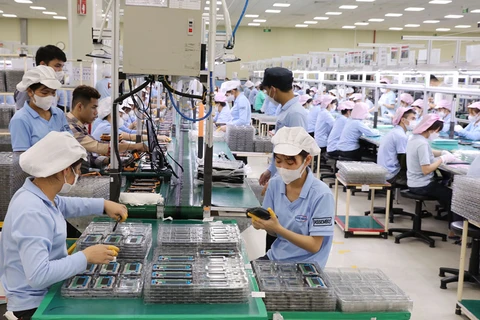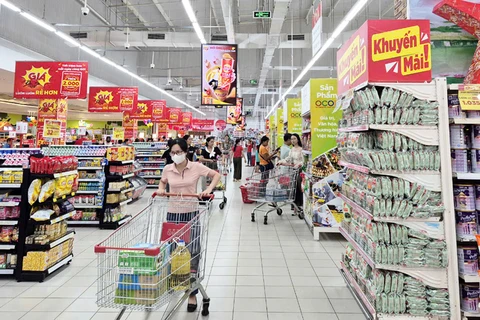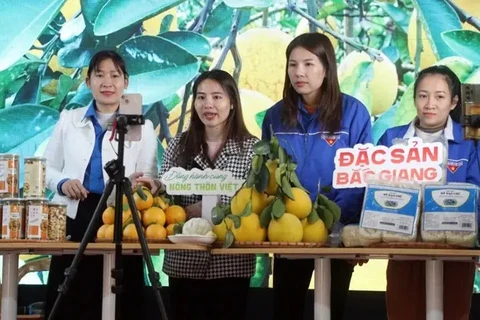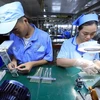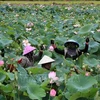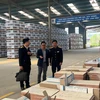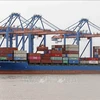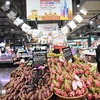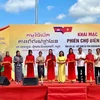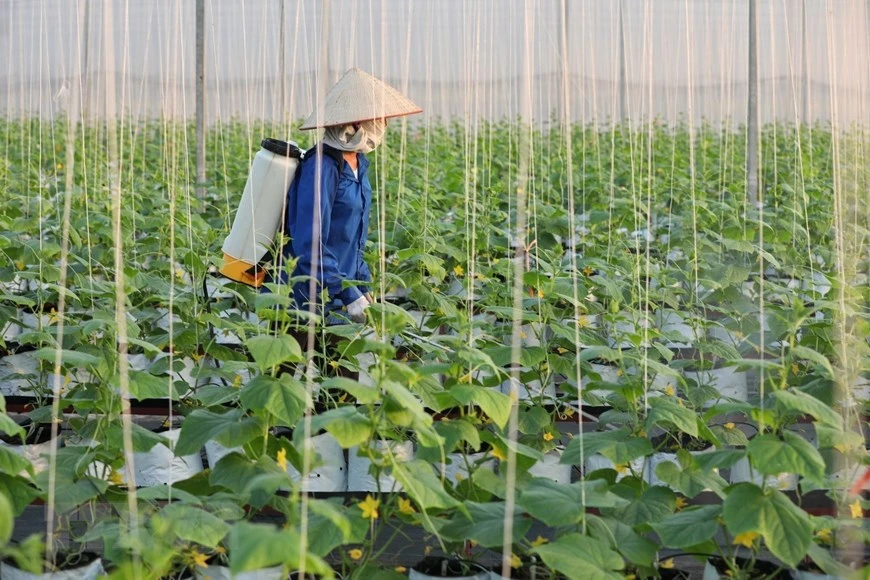
Bac Giang (VNA) – The northern province of Bac Giang province is implementing various measures to boost its agro-forestry-fishery production in the remainder of the year, according to the provincial People's Committee.
The locality has provided support for farmers in cultivating, harvesting, and finding markets for such local staples as rice, vegetables, grape fruit, and orange.
Besides, disease prevention measures have been carried out for both crops and livestock, particularly African swine fever containment, while local disaster forecasting capability has been strengthened to protect local agricultural production.
With a view to concretising its cultivation plan for the year, Bac Giang is accelerating the intercropping and double cropping of vegetables and short-term crops to increase agricultural output.
Besides, it is pushing ahead with the transition to high-value crops such as vegetables, medicinal herbs, and flowers and developing concentrated production areas aligned with market demands and integrated with post-harvest processing.
For the coming winter crop, the province eyes to cultivate approximately 22,000 hectares of vegetables, maize, peanut, sweet potato, and potato, among others. It has promoted production chains and encouraged large-scale farming in value chains with integrated mechanisation.
In the livestock sector, Bac Giang has focused on developing its primary species of pigs and chickens while promoting the development of other livestock like waterfowl, horse, buffalo, and cow, aiming to achieve its annual production target of over 286,000 tonnes of live weight meat of all kinds.
The province has set a growth target of 0.15% for its agro-forestry-fisher sector in 2024. The total production value (with 2010 comparative prices) is projected to exceed 22.8 trillion VND (901.2 million USD), of which the agricultural industry and related services account for more than 20 trillion VND, forestry and services contributing over 1.3 trillion VND VND, and aquaculture topping 1.5 trillion VND.
A significant focus has been placed on the One Commune One Product (OCOP) programme, striving to have at least 85 new products recognised as OCOP ones. By the end of this year, the province aims to have more than 350 products rated three stars or higher and develop at least two products qualifying for five-star status.
The forestry sector has also received due attention as the province is targeting a sustainable timber harvest of 1 million cubic meters by the end of the year.
Bac Giang is setting the stage for a significant transformation in its agriculture sector, aiming to have around 60 cooperatives utilising high-tech solutions in production by the year-end.
This is part of a strategy to enhance the province's agricultural productivity and sustainability through technological innovation.
In addition to the cooperatives using hi-tech, the province also plans to engage 200 agricultural cooperatives in product sales in accordance to value chains. These cooperatives will play a crucial role in the province's agricultural ecosystem by providing essential inputs such as seeds, fertilisers, pesticides, and various supporting services. Moreover, they will secure sales contracts, particularly for crops like vegetables, potatoes, cucumbers, tomatoes, pineapples, lychees, and longans.
These contracts will help stabilise income for local farmers and ensure a steady supply of raw materials for processing and export. The province has set ambitious targets to further develop its cooperative sector by 2025.
It plans to establish at least 80 new cooperatives, which will see an additional 500-600 members. Additionally, the province aims to integrate 30 new units into the provincial cooperative alliance, strengthening the overall cooperative network.
Bac Giang aims to increase the number of cooperatives classified as good or excellent by 6% compared to 2024. High-tech adoption will be at the forefront of this improvement, with a target of 80 cooperatives applying advanced technologies in their operations.
Furthermore, 220 agricultural cooperatives are expected to collaborate closely with enterprises in value chain production, ensuring that the entire agricultural process, from input provision to market access, is streamlined and efficient.
The province has already made strides in integrating high-tech solutions into its agriculture sector. It has established five cooperatives that are utilising Industry 4.0 technologies and five startup agricultural cooperatives that are applying advanced tech solutions.
These cooperatives are engaged in various activities, including fruit cultivation, medicinal plant production, producing Chau Son rice noodles, organic pork production, greenhouse-grown vegetables and flowers, and aquaculture./.
